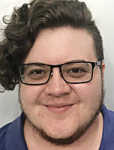
Stay-at-home learning options are abundant
As local schools discuss extending the amount of time students will be out to past April 6 due to continued cases of COVID-19, many students will be sent work to do from home.
Take it from a former homeschooler, that can be hard to get done. There’s usually far more interesting things to do at home than algebra problems and book reports. That’s just the fact of the matter.
However, as this break continues, students will likely experience something similar to the summer academic backslide, which basically recognizes that students lose some of the information they learned during extended breaks. It’s most commonly seen during summer break, but can be experienced during any time out of classes.
However, this break should be seen as an opportunity to make learning fun.
It’s a lot easier to do math problems when you’re using M&Ms to visualize them — especially if you get to eat the candy afterward. Really, just any kind of reward after getting something done can help make it happen — your psychology term for this column is positive reinforcement.
I think the important thing during any break from school is to remember that anything can be educational if looked at in the right light.
For younger students, make bread. You’re reading the recipe, doing math to figure out proper measurements and exploring chemistry as the ingredients mix. With a little bit of research, you can talk about the history of bread and yeast.
Sure, the history of bread probably isn’t part of the regular curriculum, but it keeps their brain active and thinking.
One of my favorite things growing up was computer games. Specifically, one called ‘Pharaoh’ where you build the ancient Egyptian empire and, looking back, was fairly historically accurate. That one is older, but another game that can help with problem solving is the Nancy Drew series put out by HERInteractive. You’ll definitely need a pen and paper though because the mysteries and clues can get complicated. The newest one is set in Salem, Massachusetts and explores the accurate history and lasting impact of the witch trials.
The Assassins Creed series uses accurate maps and historical events as the basis of the story.
For more direct ideas, a number of museums from around the world are making online tours accessible. The Google Arts and Culture website also has other museums tours.
If you want something closer to home, findagrave.com and ancestry.com can help research local or personal historical figures. If nothing else, find somebody on one of the websites and learn about them.
If none of that sparks interest in students, there’s plenty of resources on YouTube. I know there’s a lot of negativity around the platform, but there’s creators working to make truly educational videos. Try Film Theory and Game Theory, that make well-researched videos that answer questions from movies/TV shows and video games using math, science, history and culture. Did I need to know the physics of an avalanche and whether the one in “Mulan” is feasible? No, but I learned the answer anyway. Because Science does a very similar thing as well, but focused on science.
LegalEagle is run by a practicing lawyer in New York who addresses popular legal questions — both real life and fictional ones. Doctor Mike is a New York doctor who does a very similar thing, but with medical questions. Mama Doctor Jones is a Texas OB/GYN who answers questions from that aspect of medicine. Rosanna Pansino and How To Cook That make baking tutorials and have videos talking about the science of baking.
All of the local superintendents have said this virus is something they weren’t prepared for. However, there’s plenty of resources that can help keep student’s minds active while the country is still responding.
Posting a comment requires free registration:
- If you already have an account, follow this link to login
- Otherwise, follow this link to register
